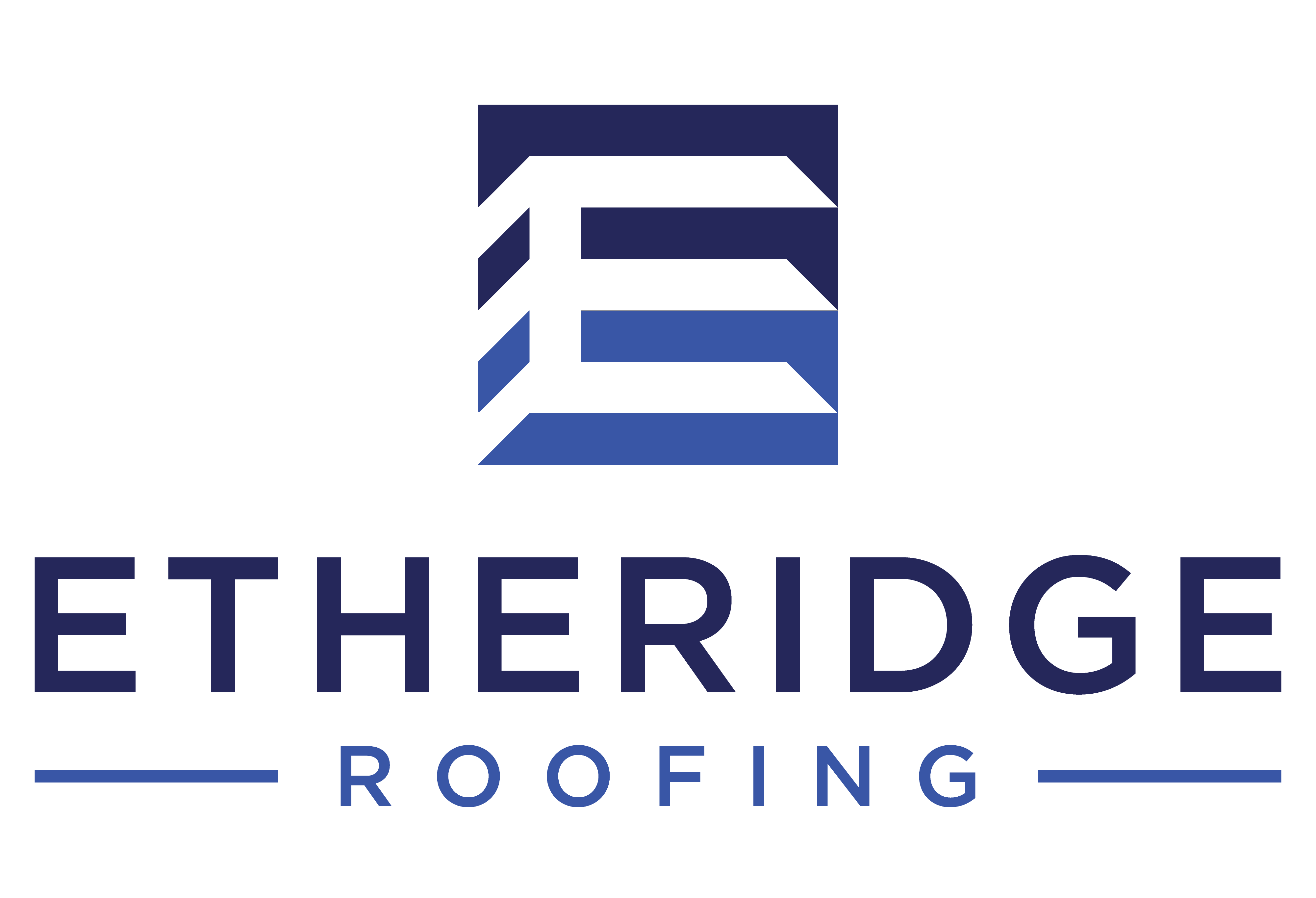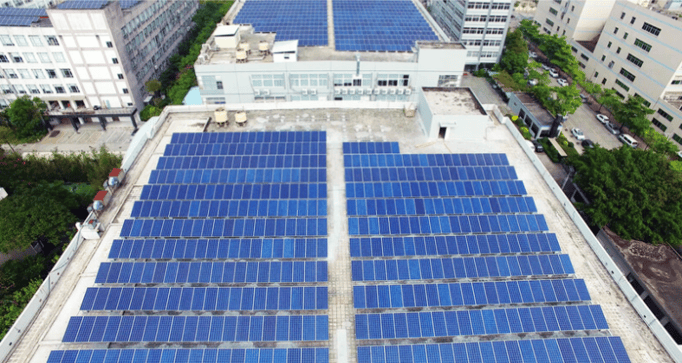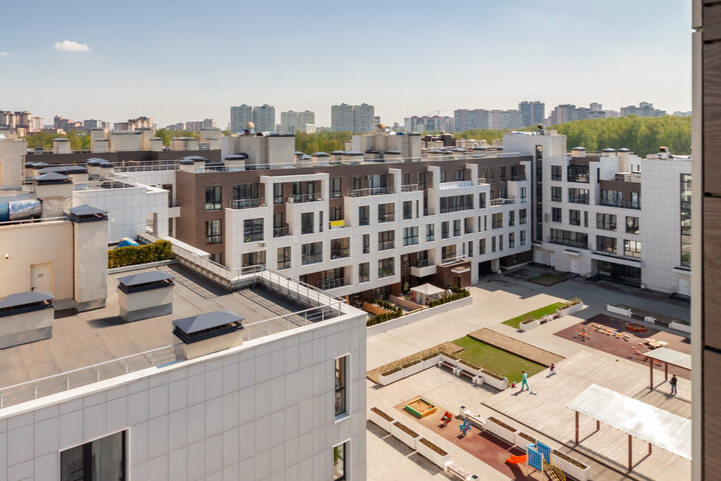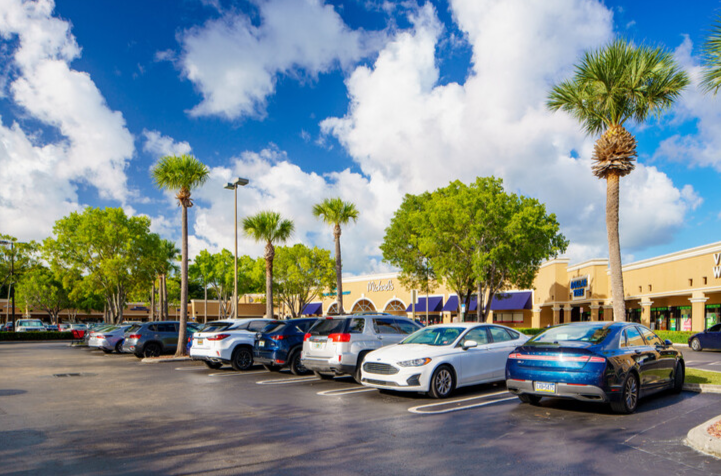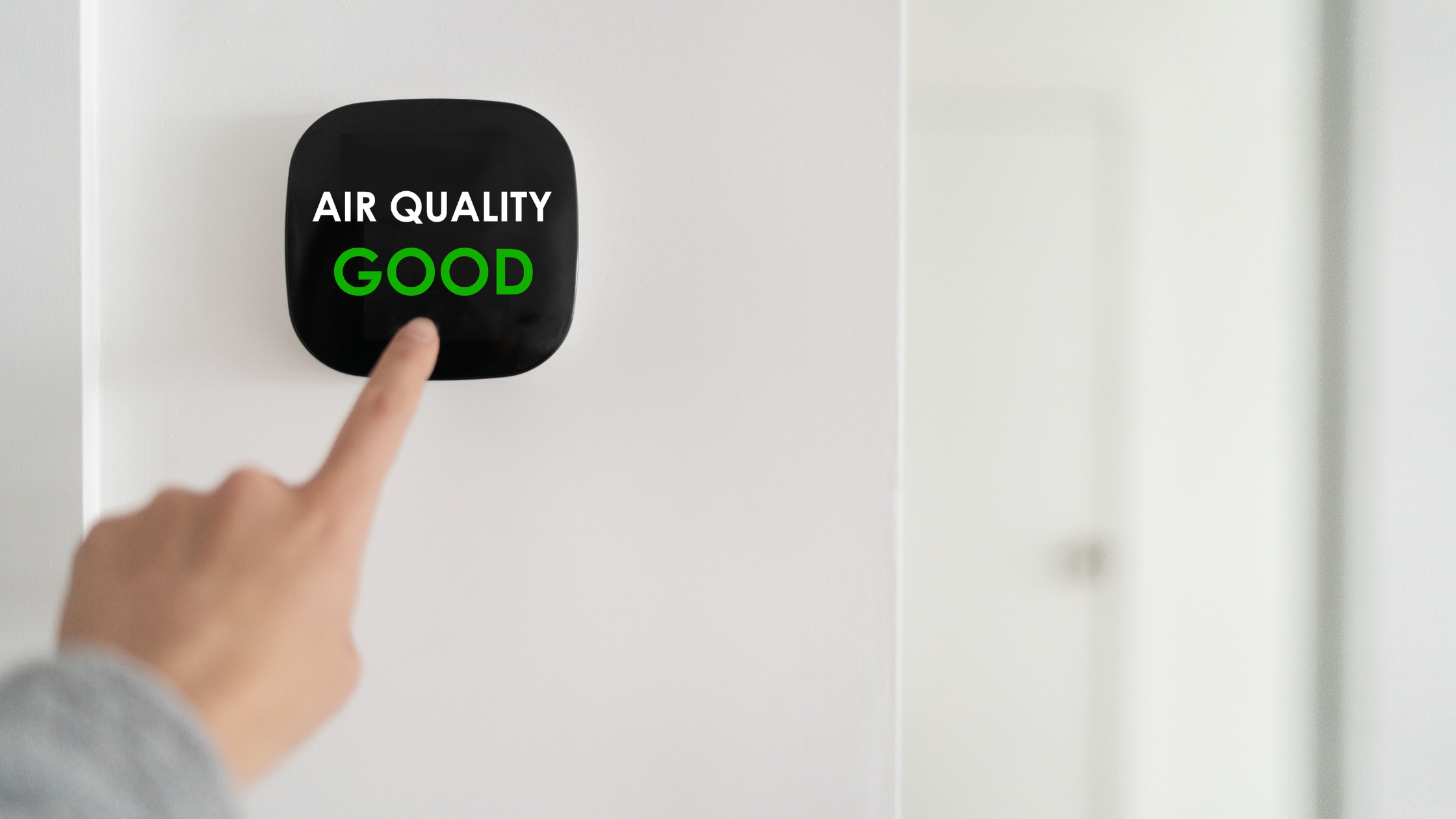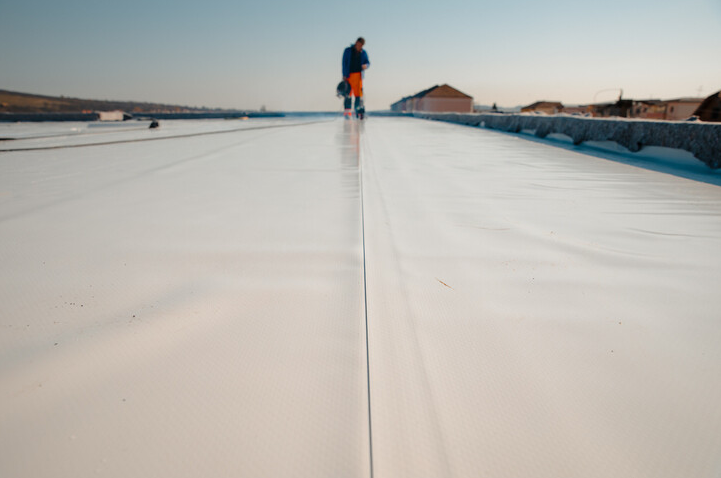Key Considerations before installing solar panels on your commercial flat roof
If you're considering solar panels for your commercial flat roof, it's essential to think about these key considerations. Flat roofing provides an ideal platform for solar installations because it provides a level surface, uninterrupted by sloping angles. Solar panels on a flat roof can provide a range of benefits, such as reducing energy costs, cutting carbon emissions, and demonstrating your commitment to sustainable energy practices. However, before you commit to solar panels, it's important to weigh up the pros and cons of flat roofing installations. In this blog post, we'll explore the key considerations to help you decide if solar panels are right for your commercial flat roof.
Assessing the suitability of your flat roof for solar panel installation.
Before installing solar panels on your commercial flat roof, it's essential to assess the suitability of your roof for this purpose. Here are some of the key factors to consider when determining whether or not your roof is a good fit for solar panel installation:
1. Age and condition of the roof: One of the first things to consider is the age and condition of your roof. If your roof is relatively new and in good condition, it's more likely to be suitable for solar panel installation. However, if your roof is older or in poor condition, you may need to address any underlying issues before installing solar panels.
2. Roof pitch: Solar panels work best when they're installed on a flat roof with a slight pitch. If your roof has too much of a slope, it may not be ideal for solar panel installation.
3. Roof size: The size of your roof is also an important consideration when installing solar panels. You'll need to ensure that you have enough space to install the panels without obstructing any important HVAC or other rooftop equipment.
4. Obstructions and shading: It's important to consider any potential obstructions or shading that could impact the performance of your solar panels. Trees, nearby buildings, and other obstacles can block the sun's rays, reducing the effectiveness of your solar panels.
5. Wind and weather conditions: Finally, you'll need to consider the wind and weather conditions in your area. High winds or extreme weather can damage solar panels, so it's important to ensure that your roof can withstand these conditions.
Assessing the suitability of your flat roof for solar panel installation is an essential first step in the process. By carefully considering these key factors, you can determine whether or not solar panel installation is the right choice for your commercial building.
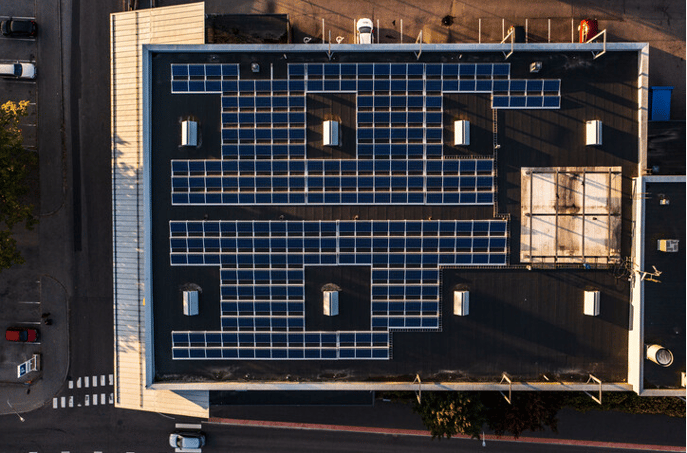
Determining the optimal positioning and orientation of the panels.
When installing solar panels on your commercial flat roof, the positioning and orientation of the panels are crucial factors that can determine the efficiency and performance of your system. It is essential to assess the angle and direction of your roof to ensure that your solar panels receive the maximum amount of sunlight possible throughout the day.
In general, solar panels are most effective when they face south and are angled at 30 to 45 degrees. However, this can vary depending on the latitude, climate, and specific conditions of your location. Factors such as shading from nearby buildings or trees, weather patterns, and the time of day can also affect the positioning and orientation of your panels.
To determine the optimal positioning and orientation of your solar panels, it is recommended that you work with a professional installer who has experience in commercial flat roofing. They can assess your roof's specific conditions and use specialized software to simulate the amount of sunlight that your panels will receive throughout the year. They can also help you design your solar panel system to maximize its performance while considering your budget and energy needs.
In addition to positioning and orientation, your installer can also recommend the type of mounting system to use for your solar panels. There are several types of mounting systems available, including ballasted, penetrating, and adhesive systems, each with their own advantages and disadvantages. Your installer can help you choose the best system for your commercial flat roof based on factors such as wind load, roof material, and structural integrity.
By taking the time to determine the optimal positioning and orientation of your solar panels, you can maximize your energy output and ultimately save money on your electricity bills. Working with an experienced installer can help ensure that your solar panel system is designed to meet your specific needs and optimize your energy savings for years to come.
Understanding the electrical requirements and limitations of your building.
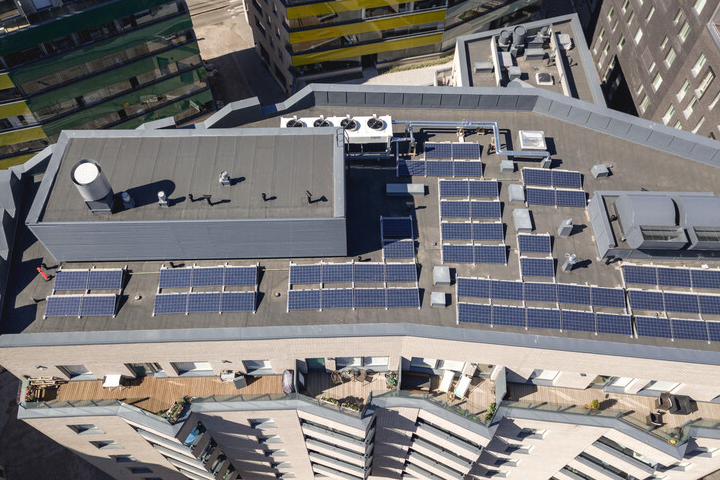
This is particularly important for larger commercial properties where electrical demands can be significant.
One key consideration is whether your building's electrical system can accommodate solar panels. You will need to evaluate whether your building has the necessary electrical capacity to handle the additional load that will be generated by the solar panels. It's important to consult with a qualified electrician or engineer to ensure that your building's electrical infrastructure is up to the task.
Another important consideration is the availability of net metering. Net metering is a billing arrangement with your utility provider that allows you to receive credits on your electricity bill for excess solar energy that your system generates. Not all utility providers offer net metering, so it's important to check with your local utility to determine if this option is available to you.
Additionally, it's important to be aware of any building code requirements or regulations that may impact the electrical installation process. In some cases, local building codes may require additional safety equipment, such as circuit breakers or disconnect switches, which will add to the cost of installation.
Finally, it's important to understand the limitations of your building's electrical system. For example, if your building is located in an area with high levels of shading or if your roof is oriented in a direction that does not receive much sunlight, it may not be feasible to generate enough solar energy to meet your building's needs.
Assessing the potential costs and financial benefits of solar panel installation.
Before making any major investments, it's important to carefully evaluate the potential costs and financial benefits of installing solar panels on your commercial flat roof. The costs associated with solar panel installation can vary greatly depending on factors such as the size of your roof, the number of panels required, and the type of panels you choose. It's also important to consider the long-term financial benefits that can be realized through reduced energy bills and potential government incentives and rebates.
One of the key financial considerations to keep in mind is the payback period for your solar panel investment. This is the amount of time it will take for the savings generated by your solar panels to exceed the initial cost of installation. Generally speaking, the payback period for commercial solar panel installations is typically around five to eight years. After this point, the solar panels will continue to generate savings for your business for many years to come.
It's also important to consider any potential incentives or rebates that may be available to your business for investing in solar energy. Many government programs offer significant financial incentives for commercial solar panel installations, including tax credits, grants, and low-interest loans. Additionally, many utility companies offer net metering programs that allow you to sell excess solar energy back to the grid, further increasing your potential savings.
When evaluating the financial benefits of solar panel installation, it's important to work with a reputable installer with experience in commercial flat roofing. They can provide valuable insight and guidance on the costs and potential savings associated with solar energy, and help you make an informed decision about whether solar panels are the right choice for your business.
Ensuring that your installation adheres to local building codes and regulations.
Before installing solar panels on your commercial flat roof, it's essential to ensure that your installation adheres to local building codes and regulations. Failure to comply with these regulations could result in fines, legal repercussions, or even safety hazards.
The first step in ensuring compliance is to research and familiarize yourself with the local codes and regulations related to solar panel installation. Different municipalities may have different requirements, so it's crucial to ensure that you understand the specific rules and requirements for your location.
One essential aspect of compliance is ensuring that your installation does not violate any zoning regulations or building codes. For instance, there may be restrictions on the size or placement of solar panels on flat roofs in your area. Additionally, building codes may dictate the types of roofing materials that can support the weight of solar panels.
Another critical consideration is electrical safety. You should ensure that your installation adheres to electrical codes and safety regulations to prevent any potential hazards, such as fires or electrocution. This includes properly grounding your system and ensuring that all wiring is appropriately installed and protected.
It's also essential to obtain any necessary permits for your installation. These permits can vary depending on your location and the scope of your installation. Working with a professional solar panel installer who understands the permitting process and can help ensure compliance is an excellent way to simplify the process and avoid any potential headaches.
In summary, ensuring that your solar panel installation adheres to local building codes and regulations is a critical step in the process. Doing so can help you avoid fines, legal troubles, and safety hazards while also ensuring that your installation is optimized for performance and longevity.
Regular maintenance and upkeep considerations for solar panels on flat roofs.
After your solar panels have been installed on your commercial flat roof, it’s important to ensure that they continue to operate effectively over time. As with any other investment, solar panels require ongoing maintenance and upkeep to ensure that they are functioning correctly and providing maximum energy output. Here are some important considerations to keep in mind:
1. Keep the panels clean - The surface of your solar panels should be kept clean and free from debris to maximize their energy output. Regular cleaning may be necessary to remove dirt, dust, leaves, or other obstructions that may accumulate on the panels over time.
2. Monitor performance - It’s important to regularly monitor the performance of your solar panels to ensure that they are operating effectively. Monitoring systems can provide real-time data on energy output and alert you to any potential issues that may arise.
3. Check connections and wiring - The connections and wiring that make up your solar panel system should be regularly inspected to ensure that they are secure and functioning correctly. Loose connections or faulty wiring can cause energy loss or system failure.
4. Inspect the roof - Regular roof inspections are important to identify any potential damage or wear that may affect the performance of your solar panel system. Damage to the roof can also compromise the safety of your system and require repairs.
5. Schedule professional maintenance - Working with a professional maintenance and repair team can ensure that your solar panel system is properly maintained and that any issues are addressed promptly. Professionals can also provide recommendations for optimizing energy output and improving system performance.
By taking these considerations into account, you can ensure that your solar panel system remains effective and efficient over the long term, providing cost savings and environmental benefits for your business.
Installing solar panels on your commercial flat roof is a major decision that can have a positive impact on your business's bottom line and the environment. However, before you proceed, it is important to consider several key factors, including the suitability of your flat roof, the positioning and orientation of the panels, the electrical requirements and limitations of your building, and the potential costs and benefits. Additionally, it is essential that you comply with local building codes and regulations, and that you maintain and upkeep your solar panels regularly. By carefully considering all these factors, you can ensure that your solar panel installation is successful and helps you achieve your energy and financial goals.
Posts by Tag
Recent Posts
Popular Posts
Have you ever wondered what goes into a commercial
As a property manager, you know that maintaining...
When choosing the best commercial flat roof for...
Recent Posts
The connection between the quality of our...
Selecting the appropriate roofing system is...
